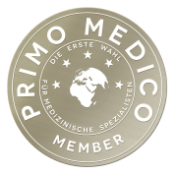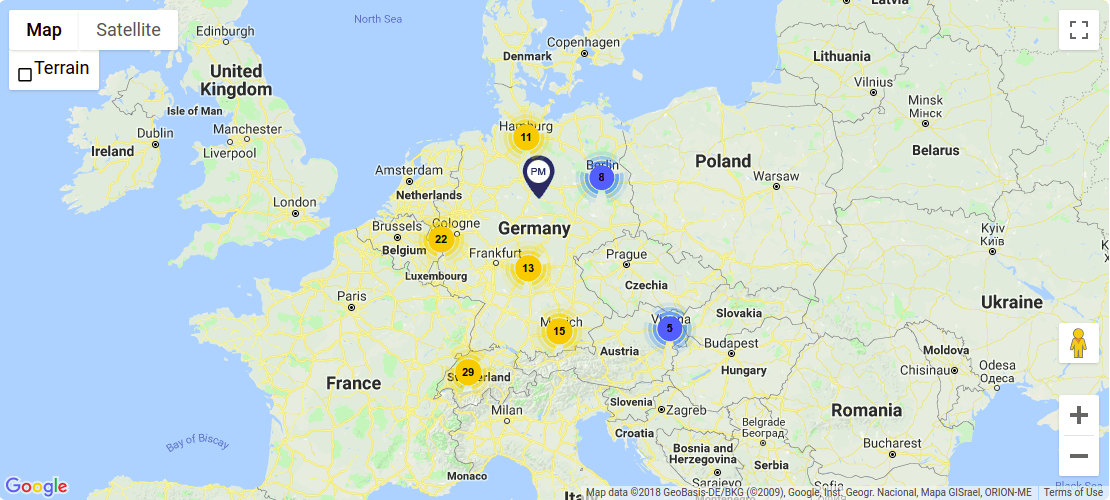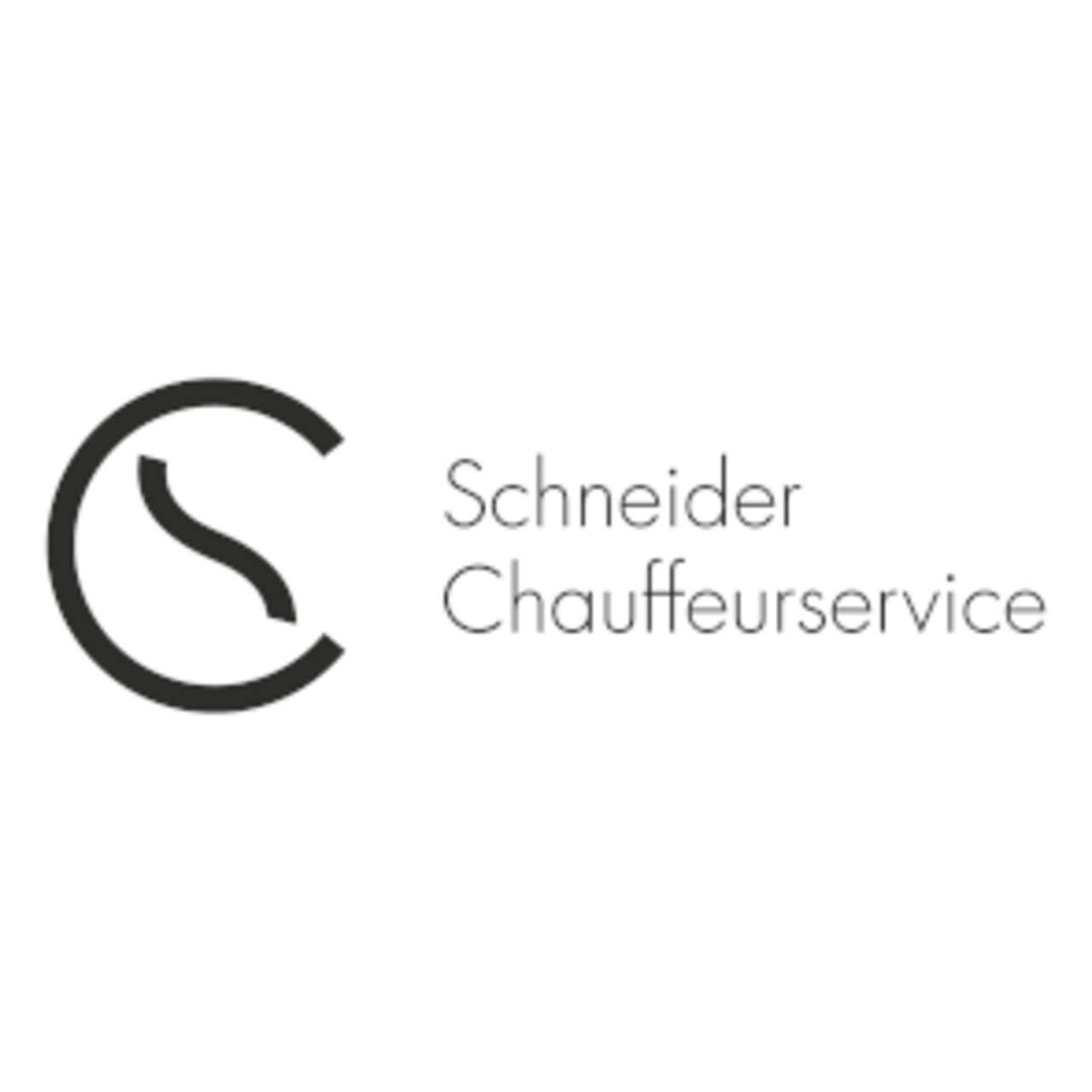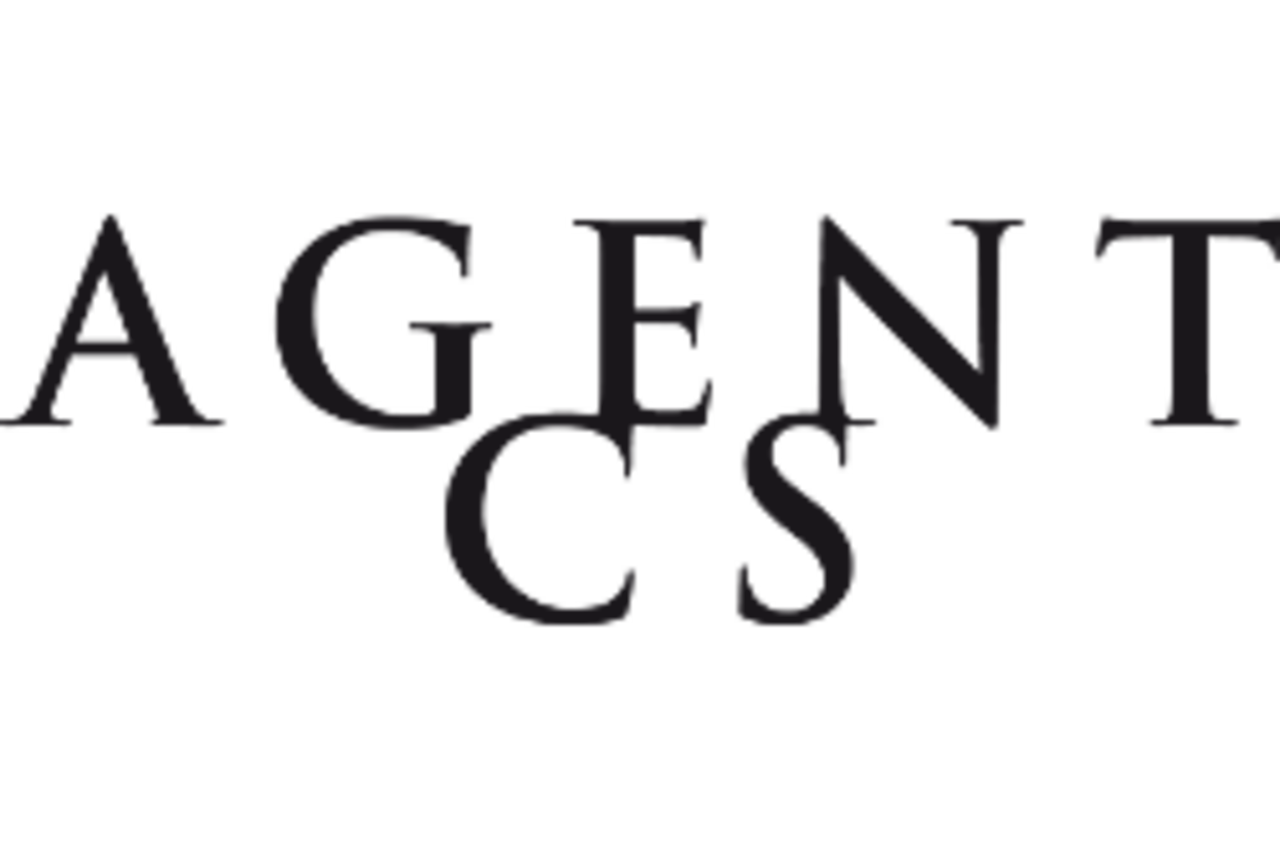HerzClinic Luzern: Prof. Dr Fröhlich, PD Dr Herzog and Dr Meyer
Treatment focus
- Chest pain, angina pectoris, coronary heart disease, and heart attack – clarification with heart catheter examination (stent implantation, FFR)
- Cardiac insufficiency (= heart failure)
- Heart valve diseases (e.g. aortic valve stenosis, mitral valve insufficiency)
- arrhythmias
- hypertension
- Check-up and performance tests for athletes
Contact
St. Anna-Str. 28, CH-6006 Lucerne
P: +41 41 510 12 64 F: +41 41 375 36 01
Consultation Hours:
Monday through Friday
08:00 a.m.–12:00 p.m. and 1:00–17:00 p.m.

Medical Range
Diagnostic services
(partly in cooperation with the Centre for Heart Imaging at the Hirslanden Clinic in St. Anna)
- Ergometry
- Long-term blood pressure measurement, long-term ECG
- 2D/3D echocardiography, stress echocardiography, transesophageal echocardiography
- Specific heart imaging (CT, MRI, nuclear cardiology, hybrid imaging)
- Heart catheter (intracoronary imaging, pressure wire measurement)
- Right heart catheter
- Myocardial biopsy
- Pacemaker/defibrillator checks
- Implantation of event recorders
Therapeutic services
(in cooperation with the Hirslanden Clinic in St. Anna)
- Balloon dilatation and stent implantation
- Complex interventions of the coronary vessels (main stem intervention, rotablation, Impella cardiac support systems)
- Minimally invasive aortic valve replacement (TAVI)
- Cardioversion treatment of cardiac arrhythmias
More Information
Card
The HerzClinic Luzern with the heart specialists Prof. Dr Georg Fröhlich, PD Dr Bernhard Herzog and Dr med. Martin Meyer offers its patients individual care of the highest medical quality.
The range of services at the Heart Clinic Lucerne covers the entire field of heart diseases. Each cardiologist also has his unique speciality so patients can be offered highly specialized medicine at the highest level. The physicians at the Heart Clinic Lucerne treat their patients according according to latest scientific findings using the most modern methods.
Special Heart Imaging – Non-Invasive 3D Images of the Heart
In order to avoid unnecessary interventions on the heart, patients are also examined non-invasively with the latest technology such as computer tomography or magnetic resonance imaging if the need arises. This allows accurate 3D images of the heart and especially the coronary arteries to be produced in the gentlest way. It is also possible to take exact blood flow measurements in the heart muscle without the need for invasive surgery. A cardiac catheter examination is carried out only if these examinations reveal signs of narrowing of the coronary arteries.
Cardiac Catheterisation – Interventions on the Heart through the Keyhole
A cardiac catheter examination is carried out for a precise imaging and treatment of the coronary vessels. A local anaesthetic is applied to the right wrist, and the artery is punctured there. A general anaesthetic is not necessary because the operation is not painful. A thin tube (= heart catheter) is then advanced from the artery at the wrist to the heart. Contrast medium is then injected directly into the coronary arteries, and an X-ray image is made. This allows narrow spots in the blood vessels of the heart to be identified with high precision. The diagnostic cardiac catheter examination takes only about 10–15 minutes. A pressure bandage is then left in place for approx. 4–5 hours. If constrictions are found during a cardiac catheter examination, these can be removed in the same session using a stent.
Stents – how the Lucerne Heart Clinic supports the vessels
A constriction or obstruction in one of the coronary arteries leads to a circulatory disorder in the affected area. This sometimes has serious consequences for the heart. The stent opens and supports the vessel from the inside, thereby allowing normal blood circulation. A stent is individually selected for each patient. The diameter and length depend on the affected vessel. When implanting the vascular support, which consists of a wire mesh, the vessel is first dilated with a balloon catheter (balloon dilatation). The balloon is then removed. What remains is the wire mesh inside the vessel.
Inpatient stays are at the Hirslanden Klinik St. Anna, one of the most comfortable private clinics in Switzerland with a wonderful view of Lake Lucerne. Patients are cared for by the well-known team of doctors.
The Lucerne Heart Clinic is also a reliable partner for chronic diseases such as heart failure (= cardiac insufficiency) and is there for you even in difficult situations.
Further information is available on the website of the Heart Clinic Lucerne.
Curriculum Vitae
Prof. Dr Georg Fröhlich
| 2016 | Heart Clinic Lucerne |
| 2015 | Dissertation, habilitation, and teaching position at Charité, Berlin |
| Since 2014 | Senior physician for interventional cardiology (especially TAVI) at Charité University Hospital of Berlin, Benjamin Franklin Campus |
| 2012–2014 | Interventional cardiologist in London (University College of London) and at the Leeds General Infirmary (largest English TAVI centre) |
| 2012 | Specialist Physician for Cardiology FMH Cardiology |
| 2010–2012 | Junior doctor for cardiology at the University Hospital of Zurich Research stay for cardiac insufficiency at the University of Columbus/Ohio (US) with Dr William Abraham |
| 2010 | Specialist Physician for Internal medicine FMH |
| 2007–2009 | Junior doctor for internal medicine at the University Hospital of Zurich |
| 2004–2006 | Junior doctor at the German Heart Centre of Munich |
| 1996–2003 | Medical studies in Vienna (Austria) Dissertation: “Evaluation of the biocompatibility of a novel stent polymer in porcine coronary arteries” |
PD Dr Bernhard Herzog
| 2016 | Heart Clinic Lucerne |
| 2016 | Cardiac Device Specialist Level I (EHRA) |
| 2015 | Habilitation and lectureship in heart imaging and cardiology at the University of Zurich |
| 2012–2015 | Transthoracic/transesophageal echocardiography Level III certification (ESC) Cardiac computed tomography Level III certification (SCCT) Nuclear Cardiology Level III Certification (CBNC) Cardiovascular Magnetic Resonance Imaging Level III Certification (SCMR) |
| 2014–2015 | Senior physician in cardiology at the Cantonal Hospital of St. Gallen and senior physician in cardiac imaging (CT/MRI/NUK) at the University Hospital of Zurich |
| 2012–2013 | Fellowship in Cardiovascular Magnetic Resonance Imaging and Echocardiography at the University of Leeds, England |
| 2011 | Specialist Physician for Cardiology FMH |
| 2007–2012 | Junior doctor in cardiology and cardiac imaging at the University Hospital of Zurich |
| 2005–2007 | Junior doctor for internal medicine at the cantonal hospital in Aarau |
| 2005 | Dissertation at the University of Ulm/Case Western Reserve University, US: “Increased in vivo frequency of IA-2 peptides reactive IFNgamma+/IL-4- T cells in type 1 diabetic subjects” |
| 1998–2005 | Medical studies at the University of Ulm, Germany |
Dr med. Martin Meyer
| 2021 | HerzClinic Luzern |
| 2021 | European Certification of Transthoracic and Transesophageal Echocardiography EACVI |
| 2019 | Certificate of Advanced Studies (CAS) Heart Failure, University of Zurich |
| 2018 | Crew Resource Management Simulation Instructor, Universitätsspital Zürich |
| 2017–2021 | Senior Physician Cardiology and Representative Director of Echocardiography, Universitätsspital Zürich |
| 2016–2017 | Senior Physician Internal Medicine & Cardiology, Cantonal Hospital Frauenfeld |
| 2016 | Specialist in Cardiology FMH |
| 2014–2016 | Assistant Physician Cardiology, Universitätsspital Zürich |
| 2014 | Specialist in General Internal Medicine FMH |
| 2013–2014 | Assistant Physician Internal Medicine, Universitätsspital Zürich |
| 2011 | Dissertation at Hannover Medical School "Endothelial Effects of HDL-Cholesterol in Patients with Diabetes Mellitus Type II and Metabolic Syndrome Compared to Healthy Subjects: Effect of Therapy with Niacin" |
| 2010–2013 | Assistant Physician Internal Medicine, Kantonsspital Frauenfeld |
| 2009–2010 | Fellowship Translational Research Cardiology, Universitätsspital Zürich |
| 2002–2008 | Medical Studies, Hannover Medical School, Germany |
| 2001–2007 | Studies in Business Administration, FernUniversität Hagen, Germany |
Team
 Prof. Dr Georg Marcus Fröhlich
Prof. Dr Georg Marcus Fröhlich
Specialist Physician for Cardiology FMH
 PD Dr Bernhard Alexander Herzog
PD Dr Bernhard Alexander Herzog
Specialist Physician for Cardiology FMH
 Dr Martin Meyer
Dr Martin Meyer
Specialist Physician for Cardiology FMH
Transport Connections
| Lucerne Railway Station | 2.3 km |
| Zürich Airport | 63 km |
| Bern-Belp Airport | 126 km |
Medical Articles
Heart specialists in Lucerne in Checkup Health Magazine
Heart specialists in Lucerne in Checkup Health Magazine
Hope for heart diseases
Hope for heart diseases
Information about Lucerne
Lucerne is the capital of the Canton of Lucerne in Central Switzerland. Its pictorial location is between Lake Lucerne and the mountains Pilatus and Rigi, directly at the outflow of the Reuss. The Reuss marks the transition between the old and the new town. The old town is considered to be particularly well preserved and frequented. Therefore, it has been a popular destination for travelers for more than 170 years. Lucerne is also not lacking in international specialties. For example, the Swiss Caritas has its headquarters in the city, and UNESCO has made the Entlebuch Biosphere in Lucerne the first biosphere reservation in Switzerland.

















